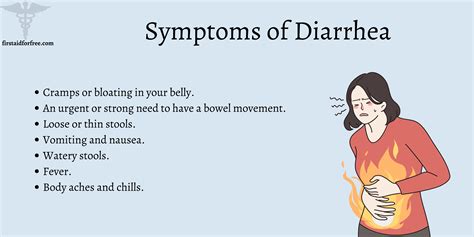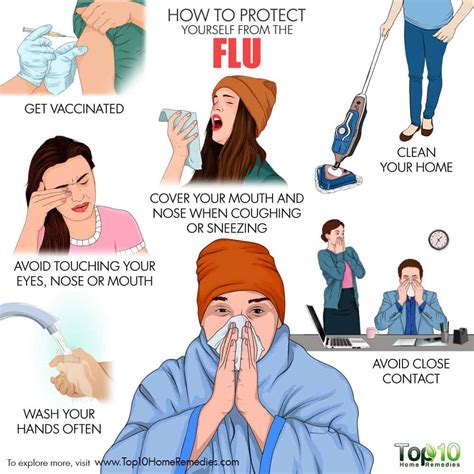Intro
Learn about flu sickness and diarrhea symptoms, including fever, vomiting, and stomach cramps, and discover remedies for relief from influenza and gastrointestinal issues.
The flu, also known as influenza, is a highly contagious respiratory illness that can affect anyone, regardless of age or health status. While the flu is often associated with symptoms such as coughing, sneezing, and body aches, some people may also experience gastrointestinal symptoms like diarrhea and vomiting. In this article, we will delve into the world of flu sickness and diarrhea symptoms, exploring the causes, symptoms, and treatment options available.
The flu is a serious illness that can have a significant impact on a person's quality of life. According to the Centers for Disease Control and Prevention (CDC), the flu affects millions of people in the United States each year, resulting in thousands of hospitalizations and deaths. While the flu vaccine is the most effective way to prevent the flu, it is not 100% effective, and some people may still contract the illness despite being vaccinated.
When it comes to flu sickness and diarrhea symptoms, it is essential to understand the difference between the flu and other illnesses that may cause similar symptoms. The flu is caused by the influenza virus, which is spread through the air when an infected person talks, coughs, or sneezes. The virus can also be spread through contact with contaminated surfaces or objects.
Understanding Flu Sickness

In general, flu sickness is characterized by a range of symptoms, including fever, chills, cough, sore throat, runny or stuffy nose, muscle or body aches, headaches, fatigue, and diarrhea. These symptoms can range from mild to severe and may last for several days or even weeks.
Causes of Flu Sickness
The causes of flu sickness are complex and multifaceted. The flu is caused by the influenza virus, which is spread through the air or through contact with contaminated surfaces or objects. There are several types of influenza viruses, including influenza A and influenza B, which can cause different types and severity of illness.In addition to the influenza virus, other factors can contribute to the development of flu sickness, such as a weakened immune system, underlying medical conditions, and age. Older adults, young children, and people with certain chronic health conditions are at higher risk of developing severe flu complications.
Diarrhea Symptoms

When it comes to flu sickness and diarrhea symptoms, it is essential to understand the difference between diarrhea caused by the flu and diarrhea caused by other illnesses. Diarrhea caused by the flu is typically accompanied by other flu symptoms, such as fever, cough, and body aches.
Treatment Options
The treatment options for flu sickness and diarrhea symptoms depend on the severity of the illness and the presence of underlying medical conditions. In general, treatment for the flu focuses on relieving symptoms and supporting the body's natural immune response.For mild cases of the flu, treatment may include rest, hydration, and over-the-counter medications to relieve symptoms such as fever, cough, and body aches. In more severe cases, prescription medications such as antiviral drugs may be necessary to help shorten the duration and severity of the illness.
For diarrhea symptoms, treatment may include hydration, dietary changes, and over-the-counter medications to relieve symptoms such as cramping and bloating. In severe cases, prescription medications or hospitalization may be necessary to manage dehydration and other complications.
Prevention Strategies

In addition to these strategies, there are several other ways to prevent the flu and reduce the risk of complications, such as maintaining a healthy diet, getting regular exercise, and managing stress.
Importance of Vaccination
Vaccination is the most effective way to prevent the flu and reduce the risk of complications. The flu vaccine is available each year and is recommended for everyone 6 months and older. The vaccine is particularly important for people who are at high risk of developing severe flu complications, such as older adults, young children, and people with certain chronic health conditions.Managing Flu Sickness and Diarrhea Symptoms

In general, managing flu sickness and diarrhea symptoms involves a range of strategies, including staying hydrated, getting plenty of rest, and using over-the-counter medications to relieve symptoms such as fever, cough, and body aches.
For diarrhea symptoms, management may include hydration, dietary changes, and over-the-counter medications to relieve symptoms such as cramping and bloating. In severe cases, prescription medications or hospitalization may be necessary to manage dehydration and other complications.
Home Remedies
There are several home remedies that can help manage flu sickness and diarrhea symptoms, including staying hydrated, using a humidifier to relieve congestion, and taking warm baths or using a heating pad to relieve body aches.In addition to these remedies, there are several other ways to manage flu sickness and diarrhea symptoms at home, such as getting plenty of rest, eating a healthy diet, and avoiding close contact with people who are sick.
Seeking Medical Attention

In general, medical attention is necessary for people who are experiencing symptoms such as difficulty breathing, chest pain, severe headache, confusion, or severe vomiting.
Emergency Warning Signs
There are several emergency warning signs that indicate the need for immediate medical attention, including difficulty breathing, chest pain, severe headache, confusion, or severe vomiting.In addition to these signs, there are several other factors that may indicate the need for medical attention, such as a weakened immune system, underlying medical conditions, or age.
Conclusion and Next Steps

If you or someone you know is experiencing flu sickness and diarrhea symptoms, it is essential to seek medical attention if necessary and to take steps to manage symptoms and prevent complications.
We invite you to share your thoughts and experiences with flu sickness and diarrhea symptoms in the comments below. What strategies have you found to be most effective in managing symptoms and preventing complications?
What are the most common symptoms of the flu?
+The most common symptoms of the flu include fever, chills, cough, sore throat, runny or stuffy nose, muscle or body aches, headaches, fatigue, and diarrhea.
How can I prevent the flu?
+Prevention strategies for the flu include getting vaccinated, practicing good hygiene, avoiding close contact with people who are sick, and staying home from work or school when sick.
What are the emergency warning signs for the flu?
+The emergency warning signs for the flu include difficulty breathing, chest pain, severe headache, confusion, or severe vomiting.
How can I manage flu sickness and diarrhea symptoms at home?
+Managing flu sickness and diarrhea symptoms at home involves staying hydrated, getting plenty of rest, and using over-the-counter medications to relieve symptoms such as fever, cough, and body aches.
When should I seek medical attention for the flu?
+Seeking medical attention is necessary for people who are experiencing severe flu sickness and diarrhea symptoms, particularly if they are at high risk of developing complications.
